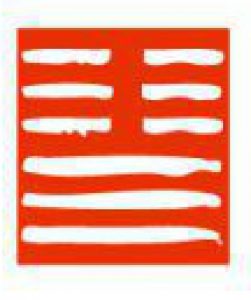I have been asked by clients and friends who live away from Leeds – ‘how do we find a good acupuncture practitioner?‘ I have written this post to give you some ideas. It should give you an idea – don’t forget that word of mouth is a good way to start, but may not be the only way of finding a good practitioner
– In what way are they qualified?
It is important that the practitioner has had adequate training. Within the British Acupuncture Council, the training is overseen by the BAAB (British Acupuncture Accreditation Board). Courses provide either a BSc (Hons) or a BA (Hons) degrees. This involves at least 3,600 hours study. They include a considerable amount of home study as well as clinical hours working with patients in a teaching clinic. Full-time study lasts at least three years. Part-time study will take longer.
Doctors, Physiotherapists, Chiropractics and Osteopaths can receive training lasting from 16 hours to 112 hours, though some elect to complete the full training within the BAAB colleges.
– Can they help with your condition?
Some therapists specialize in treating certain conditions. For example, working with cosmetic acupuncture, or working with assisted fertility. It is important to ask if they have had experience in treating your kind of condition.
– What kind of acupuncture do they practice?
There are many styles of practice, and some may be better suited to your condition. For example:
- Japanese Acupuncture – a gentle needle style; can treat particular organs well.
- Chinese Acupuncture – common among practitioners in the UK – based on looking at symptoms.
- Cosmetic Acupuncture – used for facial revitalization, and an alternative to medical interventions.
- Western/ Trigger point Acupuncture – good for acute muscle and joint problems.
- Ear acupuncture – good for addictions, and pain, management.
– How long will treatment last?
Practitioners should not tell you how many treatments you will need before they have seen you, taken your health history, and made a diagnosis. In fact, everyone heals at a different pace. Your condition may be resolved in one or two treatments, or it may take many more. But as a ‘rule of thumb’, how long it takes you to heal depends on how long you’ve had your condition, the severity of your symptoms, your overall health, and the underlying cause of your condition.
The practitioner should have regular reviews to discuss how well you are doing, and what benefits you are seeing.
– How much does it cost?
Prices vary depending on location, and type of treatment. For example, cosmetic acupuncture tends to be more time consuming and uses specialized needles and so costs more). You should also ask whether the initial consultation is more and includes a treatment.
– Is there more you need to know?
- Are they in a health insurance scheme, such as the local Hospital Fund or Forrester’s for example?
- Is there adequate parking close by?
- Are there stairs if you are disabled?
– How do you feel?
When you have spoken to them, how do you feel? Often you will have a ‘gut‘ feeling and intuit whether they are right for you. You can always phone back, and speak to others if you are unsure. It is important to feel comfortable after all!
This blog was based on an article by Lynn Jaffe – an american author and acupuncturist.
